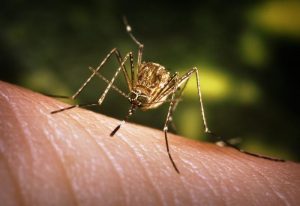By NewsDesk @infectiousdiseasenews
In a follow-up to a report last week, the Arizona Department of Health Services reports 14 human West Nile virus (WNV) fatalities through October 1.

The number of cases has increased to 256 total WNV cases (149 confirmed and 107 probable) with Maricopa County accounting for more than 80 percent of the state’s cases (207 total).
Nationally through today, the Centers for Disease Control and Prevention (CDC) has reported 725 cases and 35 deaths.
It takes 2-6 days for a person to develop symptoms after being bitten by a mosquito infected with WNV.
Only 1 out of 5 people with WNV will have symptoms. Individuals may develop a fever with other symptoms, such as headache, body aches, joint pains, vomiting, diarrhea, or rash. Most people who experience these symptoms will recover completely, although fatigue and weakness can last for weeks or months.
Severe illness can occur in people at any age; however, people over 60 years of age are at the greatest risk for severe illness. Additionally, individuals with certain medical conditions, such as cancer, diabetes, hypertension, kidney disease, and people who have received organ transplants are also at greater risk for serious illness. In more severe cases, the illness can affect the brain causing encephalitis (swelling of the brain) or meningitis (swelling of the surrounding brain tissues). The symptoms of neurologic illness can include headache, high fever, neck stiffness, disorientation, coma, tremors, seizures, or paralysis. Recovery from severe illness may take several weeks or months and some of the neurologic problems may be permanent. Rarely, death can occur.
- Vietnam COVID-19 total tops 800K, 49% of people received 1st dose
- Measles in the Americas: Confirmed cases in Brazil and the US
- Merck plans to submit for EUA for COVID-19 pill, molnupiravir
- Finland reports 71% of eligible population vaccinated against COVID-19
- Nigeria outbreaks: Cholera deaths top 3,000, More Lassa fever, No monkeypox in September
- Metro Manila: COVID-19 cases dropping, 75% fully vaccinated
- India: Delhi reports increase in dengue
- Venezuela: Yellow fever cases reported in Monagas State, according to NGO

